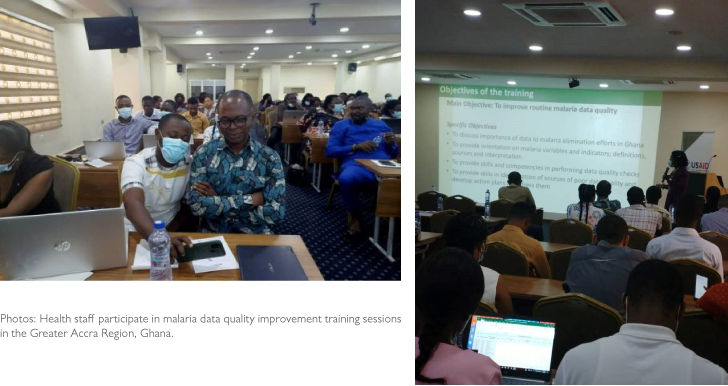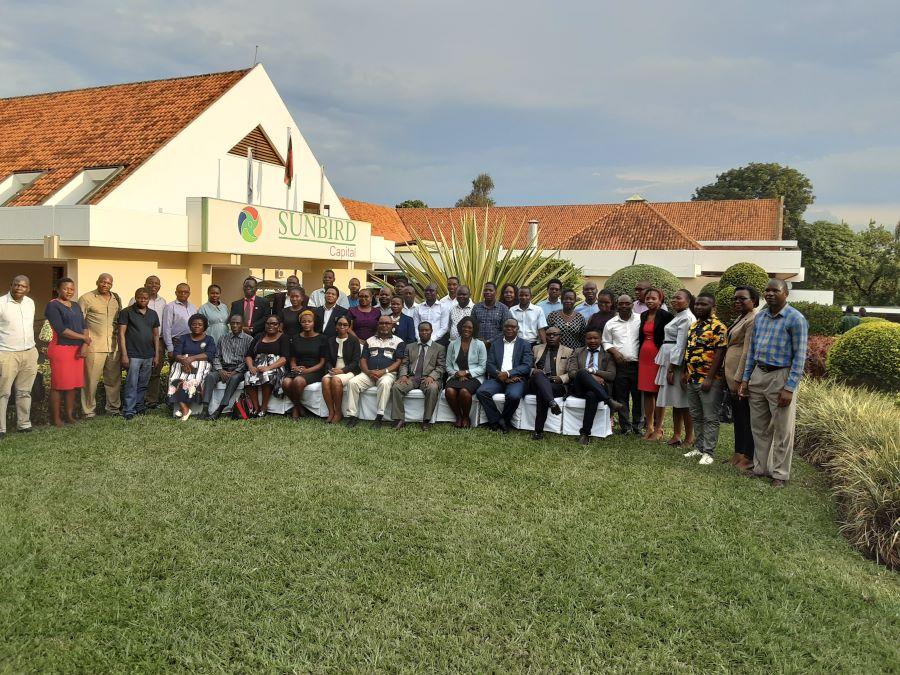This World Malaria Day, we’re marking the date with World Health Organization (WHO)’s theme “Time to deliver zero malaria: invest, innovate, implement.” The international community is focusing on the third “i” – implement – and the importance of reaching marginalized populations with the tools and strategies available today.
According to the WHO’s latest World malaria report, several countries have made progress in expanding access to malaria services for most at-risk populations – but there’s still a lot of work to be done. According to the report, one key challenge that countries have faced in expanding malaria services has been weak surveillance systems.
The Country Health Information Systems and Data Use (CHISU) program supports malaria elimination efforts in Ghana and Malawi through health information system (HIS) strengthening, which includes these countries’ surveillance systems. Malaria remains a major public health problem in both Malawi and Ghana, with 5.9 million cases in Malawi and more than 5.7 million cases in Ghana as of 2021.
Training health staff to improve malaria data quality in Ghana
In Ghana, routine and high-quality malaria data are key for decision-making as the country works toward malaria elimination. CHISU works with the Ghana Health Service to strengthen its systems for collecting malaria-related data and improve data quality processes, analysis, and use. Over the last year, CHISU partnered with Ghana’s National Malaria Elimination Program (NMEP) and the Center for Health Information Management (CHIM) to train 251 staff on malaria data quality improvement using district- and subdistrict-level data validation and verification tools, and also to conduct follow-up supportive supervision. CHISU also supported NMEP and CHIM by training 79 additional health staff from six priority districts on data analysis, interpretation, visualization, and use.
With CHISU support, these district staff were also trained on how to better use the electronic outpatient malaria case management tool (e-tracker) at the health center and Community-Based Health Planning and Services (CHPS) levels to capture transactional client data. In the coming years, CHISU will continue assisting NMEP to implement a coherent data quality assurance approach through district data validation meetings, facility follow-up visits, data quality assessments, onsite supportive supervision, and coaching on malaria data management to ultimately improve the use of information for decision-making around malaria.

Partnering up for malaria strategy development in Malawi
In Malawi, strategy development has been key in creating a sustainable data use culture by strengthening the demand for data — and this includes the demand for malaria data. The country’s previous National Malaria Control Program (NMCP) strategy ended in December 2022, as did the overall Health Sector Strategic Plan. This meant that Malawi needed to develop a new strategy and submit a Global Fund grant application to avoid a gap in funding for their malaria programming.
NMCP and implementing partners convened a Malaria Program Review Task Force — with CHISU appointed to lead the Task Force in developing a new malaria strategy. CHISU worked with NMCP to analyze malaria data and facilitate a series of program review meetings and workshops, during which participants identified gaps and prepared reports to inform the new malaria strategy. In addition, CHISU undertook an assessment using the Stages of Continuous Improvement (SOCI) approach to evaluate Malawi’s overall health information system (HIS) and inform the country’s new HIS Strategic Plan. The SOCI assessment measures the goals and status of the HIS across various domains — including HIS leadership and governance, information and communications technology infrastructure and interoperability, and data quality and use.
In addition to codifying critical updates to the country’s plan to eliminate malaria, the new strategy was key to applying for funding through a new grant model developed by the Global Fund focused on high-impact interventions.
Malawi’s malaria strategy was successfully used to secure this grant funding in early 2023 and, since April, it is being implemented in the country. The strategy includes a plan for evidence-based implementation and intervention allocation according to districts, strengthened data use for malaria surveillance, and malaria activity monitoring at all program levels.

CHISU’s work in Malawi and Ghana demonstrates how both government-level strategy and quality data at service delivery points are essential for creating strong surveillance systems – and for generating quality health information that can be used to combat malaria. While there’s much work still to be done in achieving zero malaria, the achievements these countries have made so far are an important foundation for overcoming future challenges around malaria elimination.